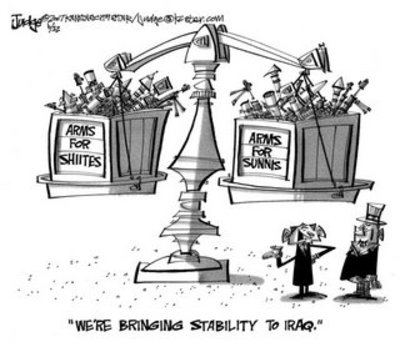Finally, a Contest Winner, and my suggestion for the Libby debacle
Posted by Jerry Mayer
Sorry for the long delay in announcing a winner in the '08 Foreign Policy Slogan contest. Our team of elite messaging judges had to be gathered from the top political consulting firms to vote. After all the ballots were counted...
First Again, submitted by Lorelei Kelly, won. A close second was Dick Klaas with "Restoring America's Leadership, Resurrecting American Values." I just think that simpler is better, and Lorelei's has the added advantage of appealing to American jingoism, which is good politics for Dems. It's not as nationalistic as it sounds. Imagine Obama issuing a peroration going "First again--in human rights. First again--against torture...First again--in taking care of our veterans" etc.
I do want to say that Keith Porter's suggestion, of returning to the language of the Constitution and Declaration is a good one. In particular, I think that "We, the People" could be an overarching theme for Democrats in 2008. Just not for foreign policy.
Shameless plug--Politico just published my op-ed on how the Dems should respond to the Libby commutation. They should propose a constitutional amendment to limit future presidential pardons. At the very least, it will force Republicans to talk about the Libby debacle all the way into the election.

